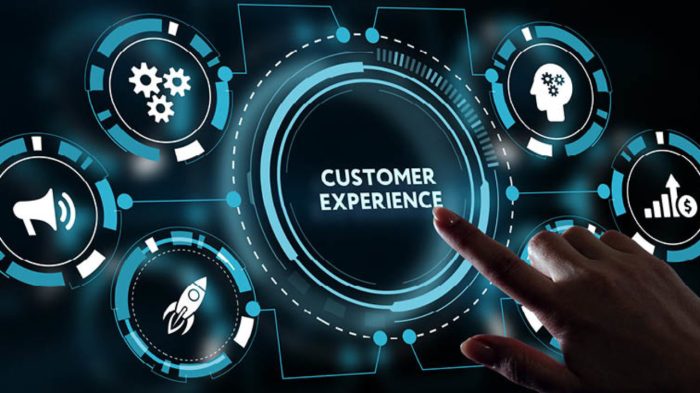Personalizing Customer Experiences sets the stage for creating unforgettable interactions that keep customers coming back for more. Dive into the world of tailored customer experiences that make a lasting impact.
From understanding the importance to implementing strategies and overcoming challenges, this topic delves deep into the realm of customer personalization.
Importance of Personalizing Customer Experiences
Personalizing customer experiences is crucial for businesses in today’s competitive market. By tailoring interactions to meet the specific needs and preferences of each customer, companies can create a unique and memorable experience that sets them apart from their competitors. This not only leads to increased customer satisfaction but also fosters loyalty and long-term relationships.
Examples of Companies Excelling in Customer Experience Personalization, Personalizing Customer Experiences
- Amazon: Amazon is known for its highly personalized recommendations based on past purchases and browsing behavior. This level of personalization keeps customers engaged and coming back for more.
- Netflix: Netflix uses sophisticated algorithms to suggest tailored content to each user, ensuring a personalized viewing experience that keeps subscribers hooked.
- Starbucks: Starbucks’ mobile app allows customers to customize their orders and earn rewards based on their preferences, creating a personalized and convenient coffee-buying experience.
Impact of Personalized Experiences on Customer Loyalty and Retention
Personalized experiences have a significant impact on customer loyalty and retention. When customers feel understood and valued by a company, they are more likely to remain loyal and continue doing business with them. Studies have shown that personalized interactions can increase customer satisfaction, repeat purchases, and overall lifetime value. By investing in personalization strategies, businesses can build strong relationships with their customers and secure their loyalty for the long term.
Strategies for Effective Personalization

Personalizing customer experiences is crucial for building strong relationships and increasing customer loyalty. In order to effectively personalize experiences, businesses can implement various strategies to collect customer data, leverage AI and machine learning technologies, and utilize omnichannel marketing.
Collecting Customer Data
- Implement customer surveys and feedback forms to gather preferences and feedback directly from customers.
- Utilize website analytics tools to track customer behavior, such as pages visited, time spent on site, and items purchased.
- Utilize social media listening tools to monitor customer conversations and sentiment towards your brand.
AI and Machine Learning Technologies
AI and machine learning technologies play a significant role in transforming personalized customer experiences by analyzing vast amounts of data to predict customer behavior and preferences.
- Recommendation engines use AI algorithms to suggest products or content based on past interactions and similarities with other customers.
- Personalized email marketing campaigns powered by machine learning can deliver tailored messages to customers based on their past purchases and browsing history.
Omnichannel Marketing
Omnichannel marketing involves creating a seamless and integrated customer experience across multiple channels, such as online, mobile, and in-store.
- Collect data from all touchpoints to create a unified view of the customer and deliver personalized interactions at every stage of the customer journey.
- Use retargeting strategies across different channels to remind customers of products they viewed but didn’t purchase, increasing the likelihood of conversion.
Implementing Personalization at Scale
Implementing personalization at scale can be a daunting task, but with the right strategies and practices, it can be achieved effectively. Here are some steps, best practices, and challenges to consider:
Scaling Personalized Experiences
- Utilize data analytics and AI: Leverage technology to analyze data and identify patterns that can help personalize experiences for a large customer base.
- Segmentation and targeting: Divide your customer base into smaller segments based on demographics, behavior, and preferences to tailor personalized experiences.
- Automation: Implement automated processes to deliver personalized content and recommendations efficiently across different touchpoints.
Maintaining Consistency Across Touchpoints
- Centralized data management: Ensure all customer data is stored in a centralized system to maintain consistency in personalization efforts.
- Standardized messaging: Develop a set of guidelines and templates for personalized messages to ensure consistency in tone and branding.
- Cross-channel integration: Integrate data and insights from different touchpoints to provide a seamless and cohesive customer experience.
Challenges and Solutions
- Scalability: As the customer base grows, maintaining personalized experiences can become challenging. Implement scalable processes and technologies to handle large volumes of data and interactions.
- Data privacy concerns: With personalization comes the need to handle customer data responsibly. Implement robust data security measures and compliance protocols to address privacy concerns.
- Resource constraints: Limited resources can hinder the implementation of personalized experiences at scale. Prioritize initiatives based on impact and invest in tools that can streamline personalization efforts.
Personalization in E-commerce

Personalization plays a crucial role in enhancing the online shopping experience for customers. By tailoring product recommendations and marketing emails to individual preferences, e-commerce platforms can create a more personalized and engaging shopping journey for each customer.
Personalized Product Recommendations
Personalized product recommendations are a key feature of e-commerce platforms that help drive sales and increase customer satisfaction. By analyzing customer behavior, purchase history, and preferences, online retailers can recommend products that are relevant and appealing to each individual. For example, Amazon’s recommendation engine uses machine learning algorithms to suggest products based on a customer’s browsing and purchase history. This personalized approach not only increases the likelihood of a purchase but also enhances the overall shopping experience by making it more convenient and enjoyable for the customer.
Role of Personalized Marketing Emails
Personalized marketing emails are another effective tool for driving e-commerce conversions. By segmenting customers based on their preferences, behavior, and purchase history, e-commerce platforms can send targeted and relevant emails that are more likely to resonate with recipients. For instance, a clothing retailer may send personalized emails featuring product recommendations based on a customer’s past purchases or browsing history. This tailored approach can increase customer engagement, drive repeat purchases, and ultimately lead to higher conversion rates. Additionally, personalized emails create a sense of exclusivity and personal connection with the customer, fostering brand loyalty and long-term relationships.